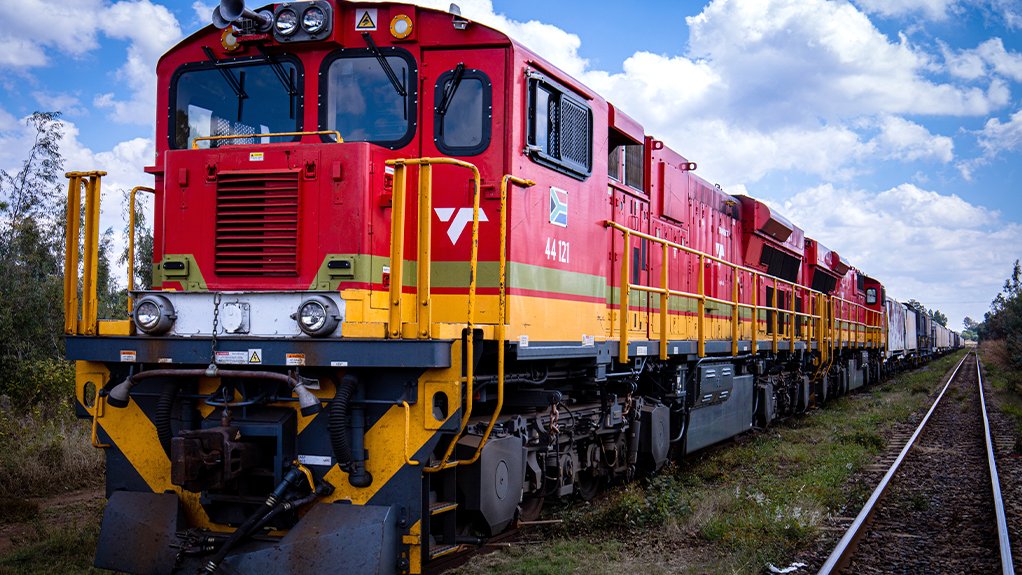Business
Transnet Could Run Out of Money in Three Months — Will the Government Bail It Out Again?

South Africa’s state-owned logistics giant, Transnet, is once again in the financial spotlight — and not for good reasons. Credit rating agency Moody’s has issued a stark warning: the parastatal could run out of cash within three months, adding pressure on the government to step in with another round of financial support.
The alert comes amid increasing scrutiny of the country’s state-owned enterprises (SOEs), many of which have become notorious for draining billions from public coffers while delivering subpar services.
“Today’s rating action reflects our growing concern over Transnet’s unsustainable capital structure, its deteriorating liquidity position, lack of formal agreement so far on additional government support, and the slower-than-planned pace of operational improvements,” Moody’s stated in a recent report.
R47 Billion Already Gone — What’s Next?
In December 2023, the South African government offered Transnet a R47 billion guarantee facility to help it stay afloat. But that support expired in March 2025 and has already been fully exhausted. According to Moody’s, the company’s remaining R7 billion in loan commitments and some available cash will only be sufficient to keep operations going for about three more months.
The lack of a formal bailout commitment from Treasury is now raising concerns about a possible default on Transnet’s debt obligations.
“We believe the government remains supportive… but the lack of a formal announcement so far creates uncertainty and heightens default risk,” Moody’s added.
Slow Recovery, Operational Challenges
Despite launching a recovery programme at the end of 2023, Transnet’s operational turnaround has been slower than expected. Contributing factors include theft, vandalism, and severe weather conditions.
-
Rail volumes increased only slightly to 152 million tons per year, falling short of the 170 million-ton target.
-
Revenue did rise — 12% in FY2024 and another 6% by September 2024 — but this was largely due to tariff hikes, not increased throughput.
Meanwhile, debt remains a looming shadow. Transnet is still sitting on a massive debt pile, with interest payments outstripping its earnings. Moody’s noted that its EBIT-to-interest coverage ratio stands at 0.6x, far below sustainable levels.
“This means the company is unable to meet regular capital expenditure and interest payments from its earnings,” the agency warned.
S&P Sounds the Alarm Too
Moody’s isn’t alone. In December 2024, S&P Global also put Transnet on credit watch, citing weak cash flow and a high likelihood of further downgrades if the turnaround strategy falters.
With a R9.9 billion bond due on 19 August 2025, the clock is ticking.
Salary Increases Amid Crisis?
In an ironic twist, Transnet is still offering salary increases. The company recently proposed a 6% wage hike from April 2025, with further increases of 6% in 2026 and 5.5% in 2027 for Satawu members — representing about 20,000 employees.
But the United National Transport Union (Untu) has rejected the offer and is threatening to strike unless a better deal is tabled by the end of Monday. If the strike goes ahead, over half of Transnet’s workforce could walk off the job this Thursday — potentially crippling the country’s already fragile freight system.
Should Government Keep Bailing Out Failing SOEs?
Transnet isn’t the only state entity under fire. Over the past nine years, the South African government has spent R456.5 billion on bailouts for SOEs like Eskom, SAA, SANRAL, SABC, and Denel. That figure could rise to R520.6 billion by the end of this financial year.
And the consequences are being felt: deteriorating infrastructure, unreliable services, and poor delivery in nearly every corner of the public sector.
As South Africans face pothole-ridden roads, sewage spills, and collapsing services, the question remains — can the government afford to keep bailing out Transnet? Or is it time to chart a new course for SOE reform?
The situation at Transnet is rapidly approaching a tipping point. With operational gains failing to translate into meaningful cash flow and a looming debt wall ahead, all eyes are now on the National Treasury. Will it intervene with another lifeline, or will it finally draw the line on endless bailouts?
{Source: The Citizen}
Follow Joburg ETC on Facebook, Twitter , TikTok and Instagram
For more News in Johannesburg, visit joburgetc.com



























